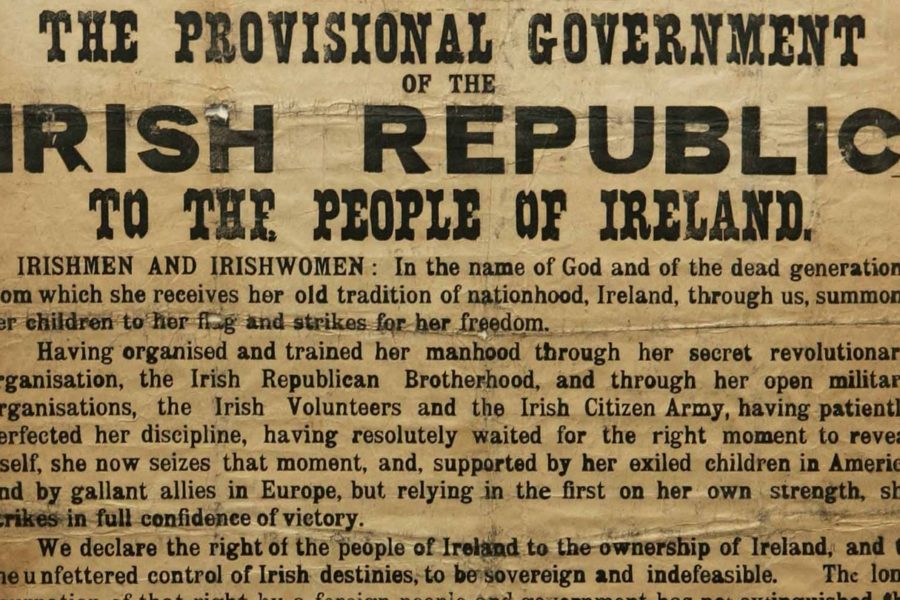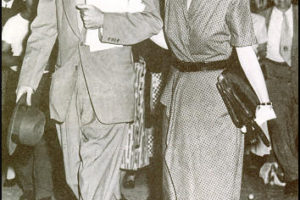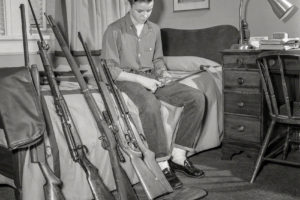From 1950 to 1958 I did eight years as an inmate at CCF (Catholic Correctional Facility) Christ the King School in Atlanta. The place was run by the Grey Nuns of the Sacred Heart, formidable and stern Brides of Christ who had come from “up North” to educate us Southern heathens in the ways of Holy Mother Church. Their teaching methods were direct, uncompromising and physical.
Although a fair number of my friends were of Irish descent, Ireland – if we thought about it at all – was just some place far away that was supposed to have leprechauns guarding pots of gold. The sad history of Ireland’s subjugation, suffering and uprising against British rule was unknown or, at least, never came up in conversation.
Undaunted, certain of the Irish nuns tried to enlighten us about the Old Country. For example, I recall my third grade teacher leading us in singing the “Wearing of the Green”. She drilled it into our little heads such that, even though we didn’t understand a word of what we were singing about, we could belt it out on command.
Proud of her accomplishment, she would sometimes invite the other nuns to watch and listen approvingly as we sang:
Oh, Paddy dear, oh did you hear, the news that’s goin’ round
The shamrock is forbid by law to grow on Irish ground.
Saint Patrick’s Day no more we’ll keep, his color can’t be seen
For they’re hanging men and women for the wearing of the green.
In high school, as my contemporaries discovered rock and roll, I became a fan of Tommy Makem and the Clancy Brothers and a half dozen lesser known Irish groups. I liked all of the Irish ballads, but considered the rebel songs to be the best of the genre.
And that’s how a half-Welsh-half-Lebanese kid learned to sing the likes of A Nation Once Again, The Rising of the Moon, Roddy McCorley, The Jolly Plowboy, and Kevin Barry, a skill that in 1971 paid off in many free beers as my young American-Irish bride and I toured pubs throughout rural Ireland.
This included one memorable night in a Tralee watering hole where we sat in a circle with the patrons who each in turn rose and sang a tune. My wife and I were introduced as “the Americans”, and, when it came our turn, I stood, took a swig of warm ale and sang of young Roddy McCorley bravely marching to his hanging at the hands of the British.
When I was done, a frail, white haired old man approached with tears in his eyes and grasped my hand.
“Surely,” he said in a quavering voice, “you’re Irish?”
I should have lied and said yes, but the nuns had taught me better. So I replied, “No, sir. Actually I’m Lebanese.”
His mouth dropped open and, with a bewildered expression, he stumbled away shaking his head.
Anyhow, of all the many compilations of Irish music and rebel songs, in my opinion the very best is The Irish Uprising 1916-1922, produced in 1966 by CBS and narrated by correspondent Charles Kuralt. It is a two hour audio history of the Irish war of independence that interweaves recordings of the participants in that war with some of the best rebel songs ever sung. It starts with the events of Easter Week 1916 and ends with British Prime Minister Lloyd George (after whom my father was named), seeking the truce that led to the Irish Free State.
The album was released on vinyl, and I searched for years to find it online. Thankfully it has been uploaded to YouTube and you can listen to it now by clicking on the picture below.
So, as Saint Patrick’s Day approaches, give it a listen and contemplate the improbable victory of a small but determined nation rising to defeat what was then the most powerful empire in the world.
Epilogue: Almost a decade ago, my wife and I returned to Ireland. To say that things had changed from 1971 would be an understatement. Ireland was booming and milking the European Union for all it was worth.
But the most striking change was in the pubs. Try as we might, we couldn’t find one where the band would play and sing rebel songs. One night, our shout-outs for Come Out Ye Black and Tans, Broad Black Brimmer, Men Behind the Wire and the like became so insistent and obnoxious that the band leader took us aside and politely broke the news that they no longer sing “that stuff” in pubs.
“Why ever not?” we demanded.
“Because,” came the patient reply as if he was speaking to brain-damaged unfortunates, “we don’t want to offend the English tourists.”




4 Comments
Leave your reply.